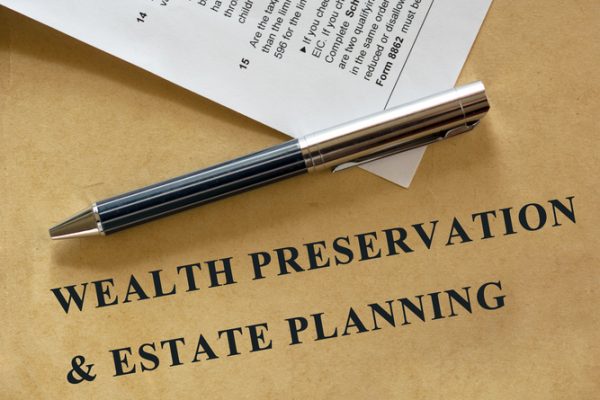How should I invest a large sum of money?

There can be a number of reasons why we may suddenly find ourselves in possession of a large sum of money to invest. More common examples might be from selling a property or a business you owned; an inheritance from the death of a loved one; settlement proceeds from a divorce, or maybe you have recently retired and are in receipt of your tax-free lump sum.
The topic of money and our thoughts and feelings around the subject are often quite emotive, and the source of any large amounts of money we receive may well add to this. Clients that have inherited large sums of money often talk to us about the added responsibility they feel to ensure the money is invested wisely; it doesn’t feel like their money and they are also conscious of perhaps how hard their benefactor worked to accumulate the money in the first instance. Perhaps you are a business owner in receipt of the proceeds of a lifetimes work, or a retiree in receipt of your tax free lump sum and want to ensure your loved ones are taken care of if anything happens to you? Whatever the story is behind the sum you have to invest, the worry about getting it right – or perhaps more accurately: not getting it wrong – can lead to more than a few restless nights sleep.
Know the limitations of you financial competency
Clearly not everyone who finds themselves in receipt of a large sum of money to invest has sufficient financial competency, which we can define as: a person’s mastery of (at least to a reasonable level) the knowledge and skills required to make sound decisions in the areas of personal finance. Of course it is quite possible to be financially competent in some areas – such as managing cash flow and budgeting your income and expenditure – but have very little knowledge when it comes to more specialist areas such as managing investments or estate planning for example.
Key considerations
So if you are not the next Warren Buffett or George Soros in the making, the burning question that you might now be asking is this: how should I invest this large amount of money? Well the first comment to make is likely one that will disappoint, and that is very simply: there is no simple straightforward answer! Still, very true all the same, as the way that any money you have is to be invested will de dependent on a number of factors. Here are some considerations to start with:
- What are your goals and objectives – what exactly are you hoping to achieve? Are you going to be investing the money for capital growth or do you need the money to provide you with a regular income payment? Maybe you require both.
- What level of return are you expecting to achieve? Is there a minimum amount of income that you will need to draw from the money for example?
- What is your time horizon and how long can you manage without the money? If you have a short time horizon of less than five years you will likely be better suited to cash deposits and certain fixed income investments. If you have a longer time frame then you might want to consider investments that are more likely to offer capital growth and protection from inflation. This might involve having some or all of your capital invested in equities (company shares).
- Are you going to need access to your capital during the investment term?
- How much are you going to set aside as an emergency fund for unexpected expenses or changes to your circumstances?
- What is your appetite for risk? Have you considered how much, if any, of your capital that you are prepared to lose?
- What is your capacity for loss? Similar to your appetite for risk, capacity for loss considers how much, if anything, you can afford to lose if investments don’t work out as planned. It is all very well having a medium to aggressive appetite for risk but if you have a low capacity for loss you may need to revise your financial plan to account for this.
- Are your circumstances likely to change in the future? In the absence of a reliable crystal ball or a psychic octopus, none of us have the advantage of knowing for certain what the future might hold; it is still important to give consideration to how you think your needs may change for the foreseeable future. Are your spending needs likely to remain consistent or do you have some significant future outgoings on the horizon?
- Do you have any other financial dependants that might be affected by your decision? Have you given thought to the implications that this might have for them?
- If you have a large amount of money to invest, there is also the possibility of a potential inheritance tax liability if or when you die. Is this a subject area you are competent with? There might be action that you can take to reduce or even eliminate this liability in later years. Forward planning can be essential.
Prioritise paying off high interest debt first
These are just a few of the key considerations you might want to ask yourself before you commit to any type of financial plan. If you have any non-mortgage related debt, you would probably be best advised to clear this before doing anything else; prioritise the debt with the highest interest first. If you also have a mortgage you might want to reduce the balance, as this will potentially save you thousands of pounds of interest. Check the details of your mortgage documents to find out how much you can pay without any penalty being applied. If you have not made use of your ISA allowance for the tax year then you could open either a cash ISA or a stocks and shares ISA. The allowance for 2016/17 is £15,240 per person.
Of course the larger the sum that you have to invest, the more things that you will be able to use it for. If you don’t have the knowledge or experience to create your own financial plan; perhaps the desire; or the hours of time to painstakingly invest researching a broad range of financial topics, then the most sensible approach is to speak to a financial planning professional that can provide you with the services that you need.
Enlist the help of a financial professional and create a plan
At First Equitable we have a diligent process that is designed to ensure you get the very best advice possible. We take great pride in helping clients achieve positive outcomes and it is our firm belief that these results are best achieved by helping to educate our clients so that they feel empowered when making such financial decisions.
If you have an amount of money to invest; smaller or larger, and would like to receive some helpful advice in a language you can understand, please complete our contact form and an adviser will be in touch to discuss your needs.



